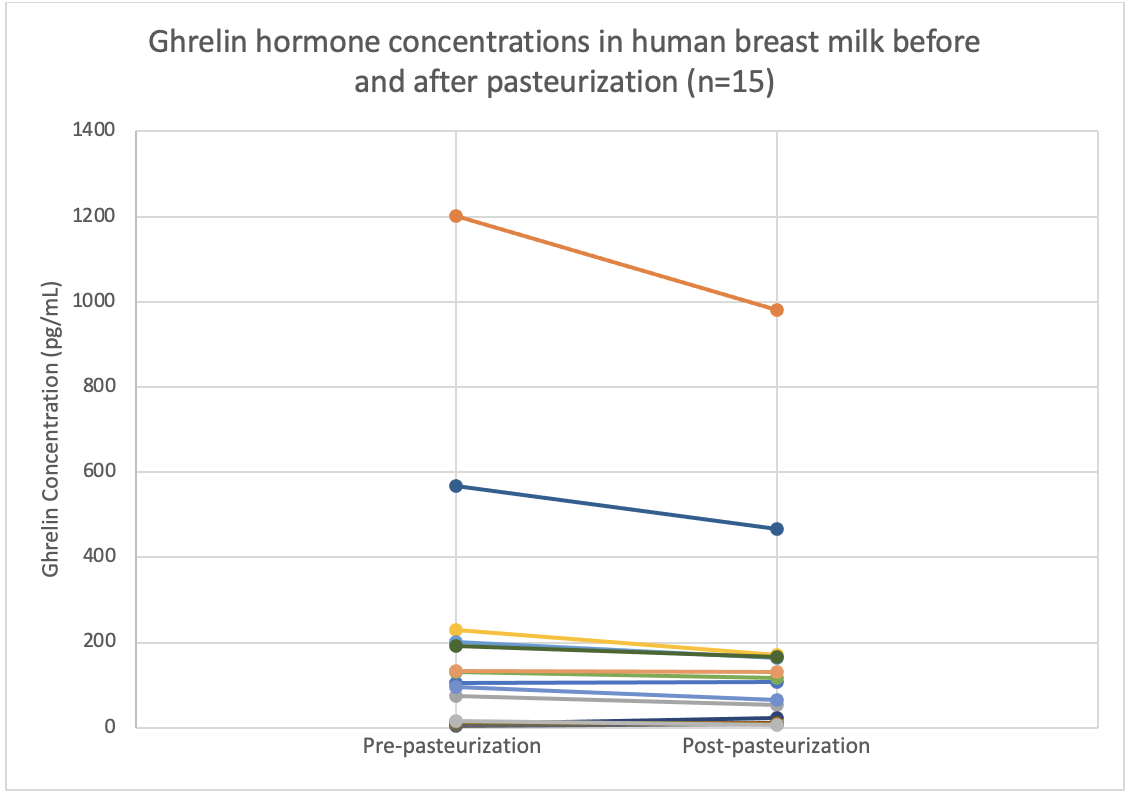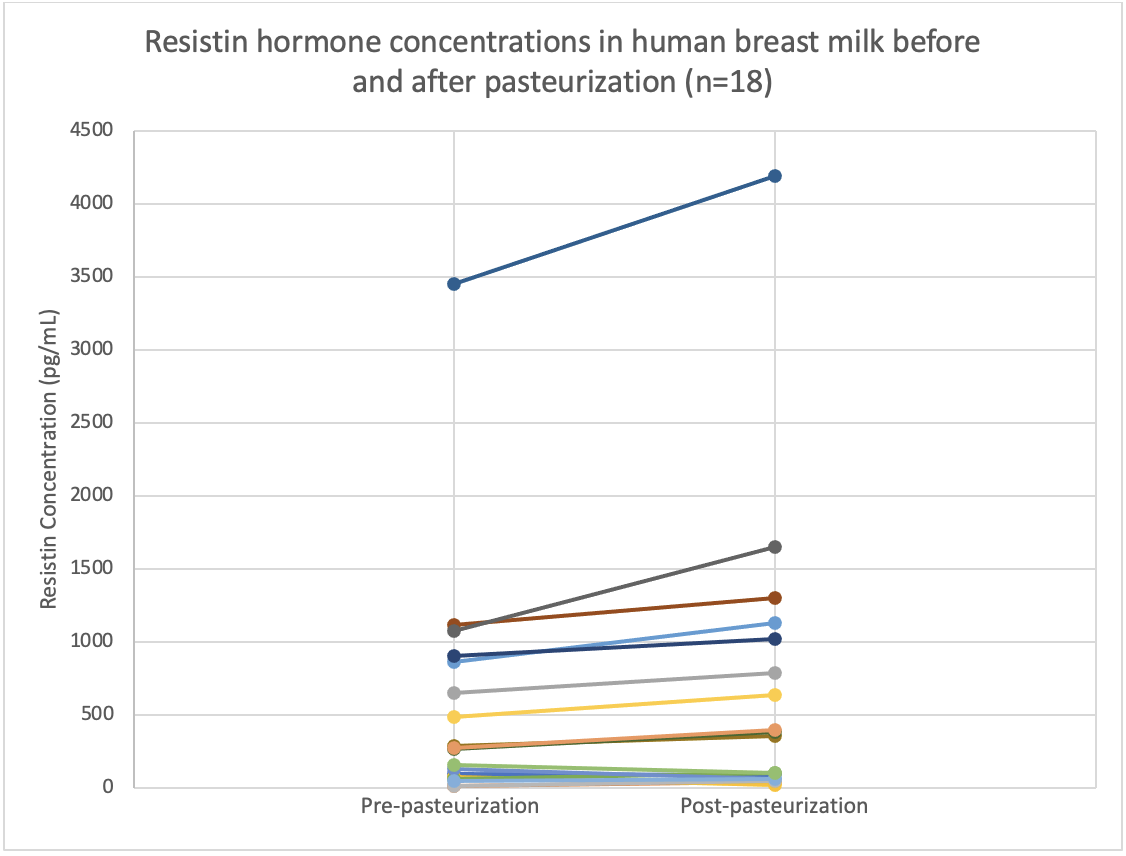Breastfeeding/Human Milk
Session: Breastfeeding/Human Milk 3: Milk Composition
500 - Effect of Holder Pasteurization on Ghrelin and Resistin Hormone Concentrations Within Human Breast Milk
Sunday, May 5, 2024
3:30 PM - 6:00 PM ET
Poster Number: 500
Publication Number: 500.2240
Publication Number: 500.2240

Stephanie Q. Zhang, MD (she/her/hers)
Clinical Fellow
Cincinnati Children's Hospital Medical Center
CINCINNATI, Ohio, United States
Presenting Author(s)
Background: Donor breast milk is recommended for supplementation for very low birth weight infants when maternal milk is not available but may exacerbate growth concerns in this high-risk population. Studies that have looked at differences between donor and maternal milk have largely focused on macronutrients, but donor breast milk also has decreased concentrations of bioactive components, which may contribute to suboptimal growth. Ghrelin and resistin are two metabolic hormones found in breast milk that have not been well-studied but may be related to infant growth and fat deposition. Little is known regarding how their levels in human milk are affected by pasteurization.
Objective: To compare ghrelin and resistin hormone concentrations in breast milk before and after Holder pasteurization.
Design/Methods: 40 samples of frozen deidentified expressed breast milk were thawed. Samples were pasteurized by heating to 63°C for 30 minutes, then rapidly chilled. Samples were spun down and the fat layer was removed. Using the skim portion of the milk, ghrelin and resistin hormone concentrations were measured in duplicate via enzyme-linked immunosorbent assay (R&D Systems) and averaged. Differences in pre- and post-pasteurization levels were compared using Wilcoxon signed rank tests.
Results: Of the initial 40 samples, 9 and 10 samples were above the detection limit for ghrelin and resistin respectively, and 16 and 10 were below the detection limit for ghrelin and resistin respectively – additional quantification is pending. For the remaining samples, prior to pasteurization, the median ghrelin level was 105.3 pg/ml (n=15, IQR 13.6-201.8) and the median resistin level was 267.6 pg/ml (n=18, IQR 76.9-864.8). Ghrelin hormone concentrations were decreased in the post-pasteurized breast milk (median change -17.6%, IQR -30.3%-1%, p=0.0084). Resistin hormone levels were higher in the post-pasteurized breast milk as compared to the pre-pasteurized breast milk (median change 24.2%, IQR 12.4-48.2, p=0.004).
Conclusion(s): Ghrelin and resistin levels may be impacted by Holder heat pasteurization. Additional testing, including analysis of samples outside of detection limits, is needed to characterize the effect further. Future research will also evaluate the relationship between hormone levels and maternal risk factors as well as impact on preterm infant growth.


